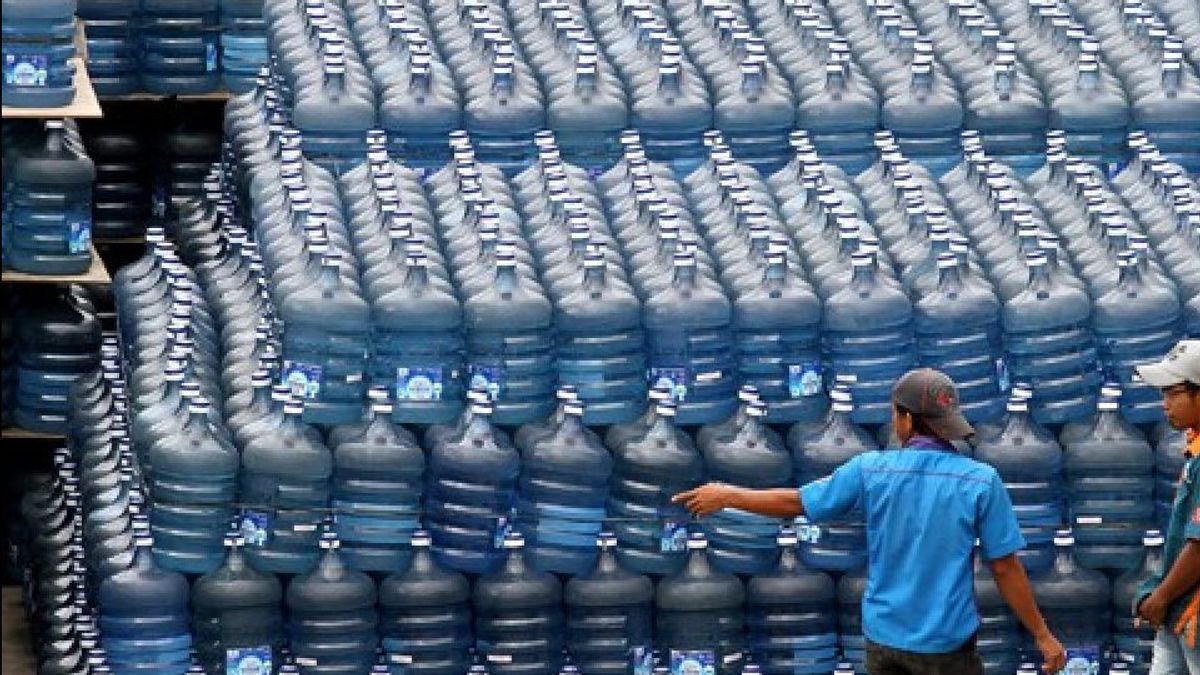JAKARTA - Recently, information emerged that the drinking water of gallons of polycarbonates in order to repeat has the potential to cause fertility disturbances in men, including conditions such as micropenis. However, this assumption is nothing more than a myth because until now there has been no scientific study that proves that BPA can cause fertility problems in men.
Dr. dr. Rahmawati Thamrin, Sp. And, Specialist Doctor of Andrology Siloam Hospital and Primaya Hospital Makassar said, there was no evidence that BPA caused micropens and infertility in men.
"Currently, a number of studies are only tested on animals on a limited scale, the results are also inconsistent. Research is carried out specifically on animals with high dose exposure, so it is irrelevant when compared to exposures that may occur in everyday humans," he said, in a written statement, Tuesday, December 3.
Dr. dr. Rahmawati emphasized that micropenis is a condition in which penis size is smaller than normal size. Androgen hormone deficiency during development can cause micropenis.
"Until now, scientific evidence regarding the connection between BPA and micropenis conditions is still very limited and not conclusive," he explained.
Based on the data, male fertility problems are caused by many things, such as hyperprolactinemia or conditions when the levels of the prolactin hormone in the blood are at a drastic level that exceeds its normal limit, the low production of the phosphylphorustic hormone FSH and the LH luteinizing hormone in the pituitary gland which causes the production of FSH to decrease the number and quality of sperm, infection and inflammation in the male reproductive organs, the variokel or the condition of widening blood vessels in blood bags, genetics and various other problems.
"The gallon water produced according to the security standards of BPOM and SNI is safe for consumption and does not cause male fertility disorders including micropenis. The lifestyle, nutritional pattern, and other environmental exposure have a more significant impact on men's fertility," he said.
The Dean of the Faculty of Medicine, Bosowa University, reminded to maintain fertility and support reproductive health optimally. Men can do some tips such as adopting a healthy diet, avoiding excessive smoking and alcohol, reducing stress and maintaining ideal weight and exercising regularly.
On the other hand, a number of studies, including in the provinces of West Java and Makassar, South Sulawesi, stated that Bisphenol-A BPA was not detected in gallons of drinking water to restore polycarbonates.
The Bandung Institute of Technology Polymer Studies Group conducted independent research related to the safety and quality of gallon drinking water in order to repeat its polycarbonates in West Java Province. The results of the study have shown that there has been no detection of the overflow of BPA in the sample of the four 4 most popular gallon drinking water brands in the region, so that all gallon drinking water samples tested are safe for public consumption and according to the standards set by the government.
In line with ITB research, two studies by the Islamic University of Makassar UIM and the University of Muslim Indonesia UMI in Makassar City, South Sulawesi showed similar results, the absence of lurusan or migration of BPA into water. This research includes testing of gallons made from polycarbonates, both exposed to direct and non-permanent sunlight. This strengthens the evidence that all samples of gallons of drinking water are safe for public consumption.
Endah Dwijayanti, S.S., M.Sc., Chair of the Makassar UIM Islamic University Chemical Study Program, explained her research entitled Analysis of Bisphenol-A and Di-ethylhexyl Phthalates in the Circulating Galon Water in Makassar City", where the study showed that all samples of drinking water tested were free from harmful substances and no BPA compounds were detected. This study has been published in Food Scientific, Journal of Food Science and Technology, Open University.
"From the research we conducted, there was no lurusan or migration of BPA in all of the gallon water samples that were tested. Thus, we can ensure that the gallon of polycarbonate consumed by the people in Makassar is safe to use as drinking water," said Endah.
Endah explained that this study was driven by widespread news stating that gallons may experience BPA migration that exceeds the safe threshold. To verify this scientifically, the research team took gallon water samples from three points in five sub-districts in Makassar. The sampling technique is carried out to ensure a comprehensive product distribution representation.
This study uses advanced equipment, namely the GCMS Chromatography-Mass Spectrometry Gas to detect BPA down to its chemical structure.
Meanwhile, on the same occasion, Ir. Gusnawati, ST, MT., Lecturer of the Chemical Engineering Study Program of the Faculty of Industrial Technology, University of Muslim Indonesia UMI explained a similar study with the title "Magnification Analysis of Cemaran Bisphenol-A BPA Plastic Packaging of PC Polycarbonates on Bottled Drinking Water Products in Galon Region in Makassar City," which was published in Jambura, Journal of Chemistry, Gorontalo State University.
The instrument or measuring instrument of this study uses UV-Vis Spectrophotometry which is a general method to test the content analysis of substances in the pharmaceutical and food industries.
"In this study, no BPA was found in gallons of polycarbonates with code No.7 which were stored both indoors and outdoors for 7 days. Polycarbonate plastics did not decompose at normal temperatures, so no BPA was detected moving to the gallon surface or to the water inside," said Gusnawati.
Researches that have been carried out in various regions have stated that there is no detectability of the lurusan BPA in drinking water in a gallon of polycarbonate packaging.
This means that it is irrelevant if bottled drinking water in gallons of polycarbonates is accused of causing various health problems. The gallon drinking water of polycarbonates that has been circulating in the market and has received distribution permits from the government is safe for consumption.
The English, Chinese, Japanese, Arabic, and French versions are automatically generated by the AI. So there may still be inaccuracies in translating, please always see Indonesian as our main language. (system supported by DigitalSiber.id)












